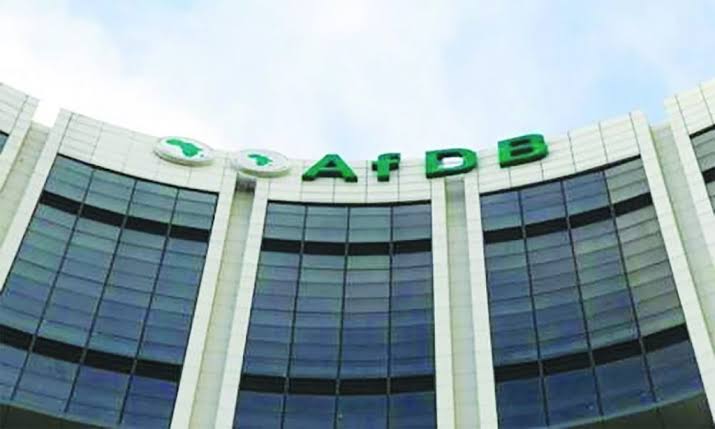🌿 Ruzu Non-Alcoholic Herbal Bitters
Ruzu Non-Alcoholic Herbal Bitters is a natural health supplement specially formulated to:
- ✅ Promote general wellness
- ✅ Detoxify the body
- ✅ Support the treatment of various ailments
Made from a powerful blend of 100% organic and medicinal herbs, Ruzu is completely alcohol-free, making it ideal for:
- 👪 All age groups
- 🌱 Health-conscious individuals
- 🌿 Anyone seeking non-alcoholic herbal remedies
Whether you're looking to boost your vitality, cleanse your system, or support healing the natural way, Ruzu Bitters offers a trusted herbal solution.
The Africa Development Bank (AfDB) has canvassed the adoption of technology, supported by the right policy environment and investment to transform agricultural productivity in a bid to ensure food security for Africans.
This is even as the developmental bank disclosed that demand for wheat in Africa has surged to over 75 million metric tonnes, highlighting a critical need for strategic investment and innovation in the sector.
This was a focal point of discussion at the ongoing West and Central Africa Wheat Summit 2024, which commenced on Wednesday, October 2, 2024 in Abuja.
In his keynote address, the President, African Development Bank, Dr Akinwumi Adesina represented by the Director General, Nigeria Country Department, Dr Abdul Kamara emphasised the transformative potential of technology in agriculture.
“The use of technology, supported by the right policy environment and investment, has transformed agricultural productivity in many countries, ensuring food security for their populations,” he stated.
“Through adoption of innovative technologies in mechanization, farming techniques, irrigation systems and high-yield crop varieties and conservation agriculture, the Cerrado savannah of Brazil increased cotton production by 300 per cent; corn by 150 per cent and soybean by 75 per cent in the last two decades.
READ ALSO: AfDB approves $500m loan to boost electricity access in Nigeria
“This has contributed to Brazil becoming a major source of food export in the world today. Similarly, the adoption of technology, when supported by the right policies, can address problems faced by farmers in West and Central Africa, such as climate change, limited access to finance and post-harvest losses among others.
“Agriculture technology can thus help to advance food security in sustainable ways in the Region. Two decades ago, the total consumption of wheat in Africa was around 25 million metric tons. This has surged to over 75 million metric tons recently,” he added.
Adesina drew comparisons with India, noting that “the proverbial poor Indian farmer has now become an exemplary multi-millionaire agricultural business executive.”
The summit, themed ‘Prioritising Policy, Innovative Technologies and Investments in Wheat Transformation towards Sustainable Food Security and Economy in West and Central Africa’ brought together prominent figures.
Adesina underscored the urgency of addressing wheat dependency in the region, saying, “West and Central Africa imports over 80 per cent of its wheat. This dependency undermines food security and economic stability.”
Key stakeholders from across the continent gathered to address the challenges and opportunities in wheat production and to chart a sustainable path forward.
He highlighted that “transforming our wheat sector offers immense potential for sustainable food security and economic growth.”
He said the dramatic rise in wheat consumption is attributed to several factors, including population growth and changing dietary preferences.
He pointed out that “in West and Central Africa, the per capita consumption of wheat is now over 20 kg.”
The summit also spotlighted Nigeria’s initiatives toward achieving national wheat self-sufficiency.
“The African Development Bank is pleased to observe that Nigeria has commenced its journey to attaining a National Wheat Self-Sufficiency,” Adesina remarked.
The Country Director of the Food and Agriculture Organisation in Nigeria Dominique Kouacou, echoed the call for private sector involvement.
“We need to encourage the private sector to join in and work at scale to achieve meaningful results,” he emphasised, affirming the FAO’s commitment to support government initiatives.
The Regional Coordinator of the West and Central Africa Wheat Development Network Prof. Benjamin Ubi elaborated on the rationale behind the summit.
“Wheat plays a crucial role in global food security and economic growth in Africa,” he stated.
He highlighted the need for collaboration among stakeholders.
He noted, “The increasing demand-supply gap for wheat is fueled by urbanization and evolving dietary preferences.”
Ubi said that the summit aims to influence policymakers to prioritise wheat production and transformation across the region.
He added that Expected outcomes include the establishment of policy reforms, the promotion of innovative technologies, and the identification of investment opportunities to enhance the wheat value chain.
By Babajide Okeowo
The post AfDB urges Africa to adopt technology to ensure food security appeared first on Latest Nigeria News | Top Stories from Naomisophyblog.
















